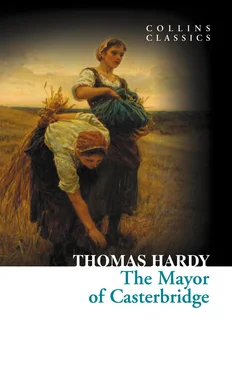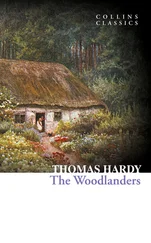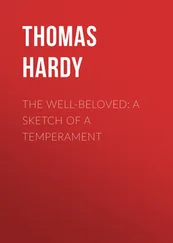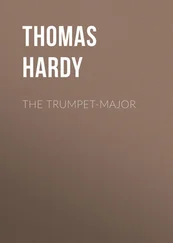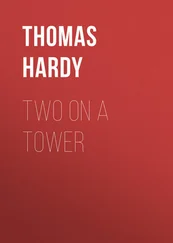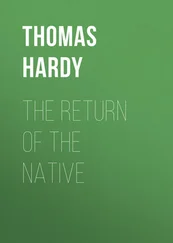It was related that there still remained under the south entrance excavated cells for the reception of the wild animals and athletes who took part in the games. The arena was still smooth and circular, as if used for its original purpose not so very long ago. The sloping pathways by which spectators had ascended to their seats were pathways yet. But the whole was grown over with grass, which now, at the end of summer, was bearded with withered bents that formed waves under the brush of the wind, returning to the attentive ear Aeolian modulations, and detaining for moments the flying globes of thistledown.
Henchard had chosen this spot as being the safest from observation which he could think of for meeting his long-lost wife, and at the same time as one easily to be found by a stranger after nightfall. As Mayor of the town, with a reputation to keep up, he could not invite her to come to his house till some definite course had been decided on.
Just before eight he approached the deserted earthwork, and entered by the south path which descended over the débris of the former dens. In a few moments he could discern a female form creeping in by the great north gap, or public gateway. They met in the middle of the arena. Neither spoke just at first—there was no necessity for speech—and the poor woman leant against Henchard, who supported her in his arms.
‘I don’t drink,’ he said in a low, halting, apologetic voice. ‘You hear, Susan?—I don’t drink now—I haven’t since that night.’ Those were his first words.
He felt her bow her head in acknowledgment that she understood. After a minute or two he began again: ‘If I had known you were living, Susan! But there was every reason to suppose you and the child were dead and gone. I took every possible step to find you—travelled—advertised. My opinion at last was that you had started for some colony with that man, and had been drowned on your voyage out. Why did you keep silent like this?’
‘O Michael! because of him—what other reason could there be? I thought I owed him faithfulness to the end of one of our lives—foolishly I believed there was something solemn and binding in the bargain; I thought that even in honour I dared not desert him when he had paid so much for me in good faith. I meet you now only as his widow—I consider myself that, and that I have no claim upon you. Had he not died I should never have come—never! Of that you may be sure.’
‘Ts-s-s! How could you be so simple?’
‘I don’t know. Yet it would have been very wicked—if I had not thought like that!’ said Susan, almost crying.
‘Yes—yes—so it would. It is only that which makes me feel ’ee an innocent woman. But—to lead me into this!’
‘What, Michael?’ she asked, alarmed.
‘Why, this difficulty about our living together again, and Elizabeth-Jane. She cannot be told all—she would so despise us both that—I could not bear it!’
‘That was why she was brought up in ignorance of you. I could not bear it either.’
‘Well—we must talk of a plan for keeping her in her present belief, and getting matters straight in spite of it. You have heard I am in a large way of business here—that I am Mayor of the town, and churchwarden, and I don’t know what all?’
‘Yes,’ she murmured.
‘These things, as well as the dread of the girl discovering our disgrace, make it necessary to act with extreme caution. So that I don’t see how you two can return openly to my house as the wife and daughter I once treated badly, and banished from me; and there’s the rub o’t.’
‘We’ll go away at once. I only came to see—’
‘No, no, Susan; you are not to go—you mistake me!’ he said, with kindly severity. ‘I have thought of this plan: that you and Elizabeth take a cottage in the town as the widow Mrs Newson and her daughter; that I meet you, court you, and marry you, Elizabeth-Jane coming to my house as my step-daughter. The thing is so natural and easy that it is half done in thinking o’t. This would leave my shady, headstrong, disgraceful life as a young man absolutely unopened; the secret would be yours and mine only; and I should have the pleasure of seeing my own only child under my roof, as well as my wife.’
‘I am quite in your hands, Michael,’ she said meekly. ‘I came here for the sake of Elizabeth; for myself, if you tell me to leave again tomorrow morning, and never come near you more, I am content to go.’
‘Now, now; we don’t want to hear that,’ said Henchard gently. ‘Of course you won’t leave again. Think over the plan I have proposed for a few hours; and if you can’t hit upon a better one we’ll adopt it. I have to be away for a day or two on business, unfortunately; but during that time you can get lodgings—the only ones in the town fit for you are those over the china-shop in High Street—and you can also look for a cottage.’
‘If the lodgings are in High Street they are dear, I suppose?’
‘Never mind—you must start genteel if our plan is to be carried out. Look to me for money. Have you enough till I come back?’
‘Quite,’ said she.
‘And are you comfortable at the inn?’
‘O yes.’
‘And the girl is quite safe from learning the shame of her case and ours?—that’s what makes me most anxious of all.’
‘You would be surprised to find how unlikely she is to dream of the truth. How could she ever suppose such a thing?’
True!’
‘I like the idea of repeating our marriage,’ said Mrs Henchard, after a pause. ‘It seems the only right course, after all this. Now I think I must go back to Elizabeth-Jane, and tell her that our kinsman, Mr Henchard, kindly wishes us to stay in the town.’
‘Very well—arrange that yourself. I’ll go some way with you.’
‘No, no. Don’t run any risk!’ said his wife anxiously. ‘I can find my way back—it is not late. Please let me go alone.’
‘Right,’ said Henchard. ‘But just one word. Do you forgive me, Susan?’
She murmured something; but seemed to find it difficult to frame her answer.
‘Never mind—all in good time,’ said he. ‘Judge me by my future works—good-bye!’
He retreated, and stood at the upper side of the Amphitheatre while his wife passed out through the lower way, and descended under the trees to the town. Then Henchard himself went homeward, going so fast that by the time he reached his door he was almost upon the heels of the unconscious woman from whom he had just parted. He watched her up the street, and turned into his house.
On entering his own door after watching his wife out of sight, the Mayor walked on through the tunnel-shaped passage into the garden, and thence by the back door towards the stores and granaries. A light shone from the office-window, and there being no blind to screen the interior Henchard could see Donald Farfrae still seated where he had left him, initiating himself into the managerial work of the house by overhauling the books. Henchard entered, merely observing, ‘Don’t let me interrupt you, if ye will stay so late.’
He stood behind Farfrae’s chair, watching his dexterity in clearing up the numerical fogs which had been allowed to grow so thick in Henchard’s books as almost to baffle even the Scotchman’s perspicacity. The corn-factor’s mien was half admiring, and yet it was not without a dash of pity for the tastes of any one who could care to give his mind to such finnikin details. Henchard himself was mentally and physically unfit for grubbing subtleties from soiled paper; he had in a modern sense received the education of Achilles, and found penmanship a tantalizing art.
‘You shall do no more tonight,’ he said at length, spreading his great hand over the paper. ‘There’s time enough tomorrow. Come indoors with me and have some supper. Now you shall! I am determined on’t.’ He shut the account-books with friendly force.
Читать дальше
